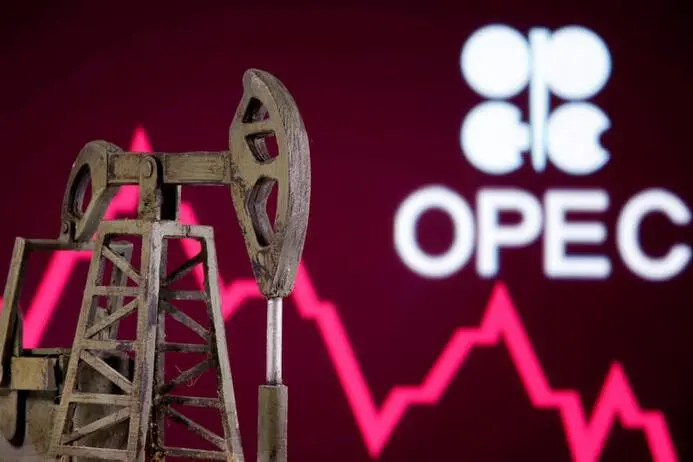PHOTO
TOKYO: Oil fell on Tuesday, giving up earlier gains, as concerns about the viability of the U.S. debt ceiling pact cooled the market's risk-on sentiment and mixed messages from major producers clouded the supply outlook ahead of their meeting this weekend.
Brent crude futures fell 59 cents, or 0.8%, to $76.48 a barrel by 0615 GMT after rising by 0.5% earlier on Tuesday.
U.S. West Texas Intermediate (WTI) crude dipped 42 cents to $72.25 a barrel, down 0.6% from Friday's close. There was no settlement on Monday because of a U.S. public holiday.
Some hard-right Republican lawmakers said on Monday they might oppose a deal that would raise the debt ceiling in the U.S., the world's biggest oil user, while Democratic President Joe Biden and Republican House of Representatives Speaker Kevin McCarthy remained optimistic the deal will pass.
Biden and McCarthy forged an agreement on the debt over the weekend and it must pass a divided U.S. Congress before June 5, the day the Treasury Department say the country will not be able to meet its financial obligations, which could disrupt financial markets.
"(The) contradictory statements from Republicans and lawmakers are keeping investors largely invested in the stand-off," said Priyanka Sachdeva, Market Analyst from Phillip Nova.
The debt deadline nearly coincides with the June 4 meeting of the Organization of the Petroleum Exporting Countries (OPEC) and allies including Russia, known as OPEC+, and the uncertainty over whether they will increase their output cuts amid a recent slump in prices is also weighing on the market.
"Investors have shifted their attention to the outcome of the OPEC+ meeting this weekend as there have been mixed messages from major oil producers," said Toshitaka Tazawa, an analyst at Fujitomi Securities Co Ltd.
Saudi Arabian Energy Minister Abdulaziz bin Salman last week warned short-sellers betting that oil prices will fall to "watch out," a possible signal that OPEC+ may cut output.
However, comments from Russian oil officials and sources, including Deputy Prime Minister Alexander Novak, indicate the world's third-largest oil producer is leaning toward leaving output unchanged.
In April, Saudi Arabia and other members of OPEC+ announced further oil output cuts of around 1.2 million barrels per day (bpd), bringing the total volume of cuts by OPEC+ to 3.66 million bpd, according to Reuters calculations.
"The voluntary production cuts in April caught the market off guard. This time, investors are extremely cautious before the final decision is announced," analysts from Haitong Futures said in a note.
Chinese manufacturing and service sector data out later this week will also be scrutinised for cues on the fuel demand recovery in the world's top oil importer. (Reporting by Yuka Obayashi and Muyu Xu; Editing by Christian Schmollinger and Jamie Freed)





















